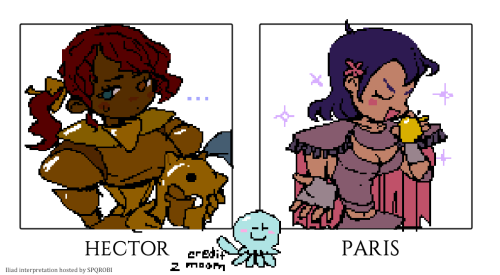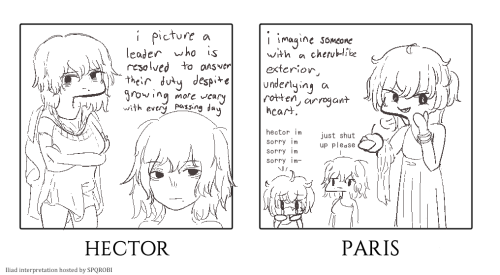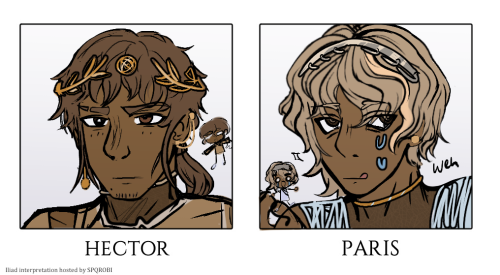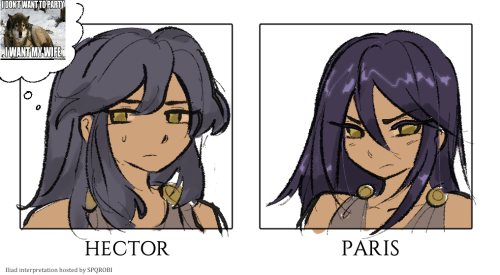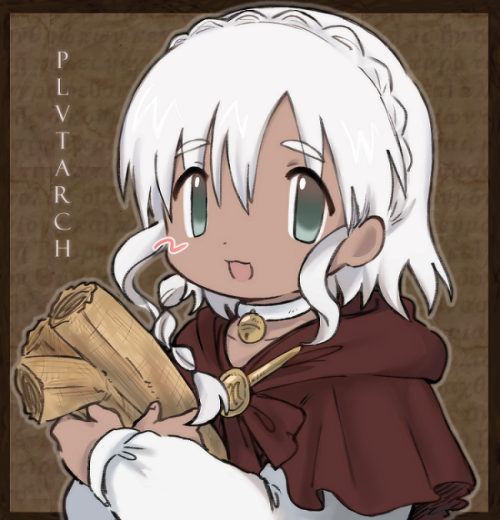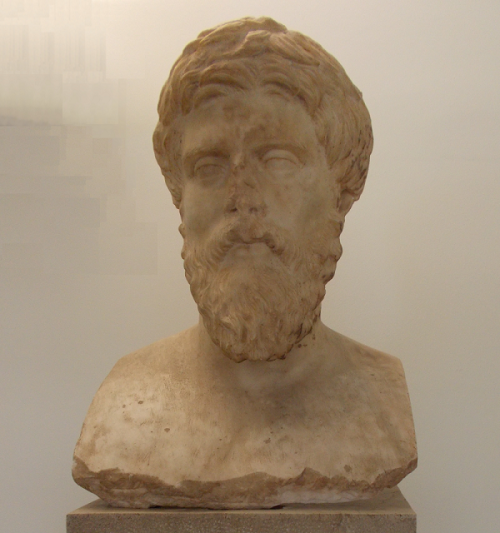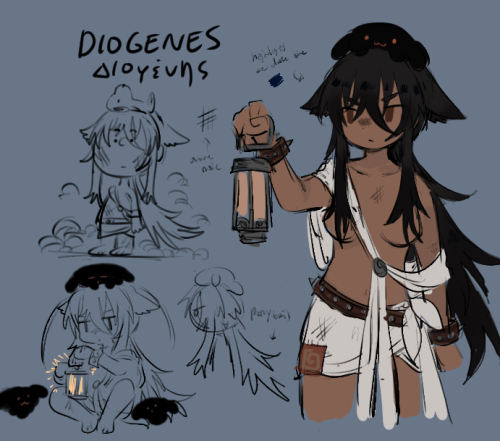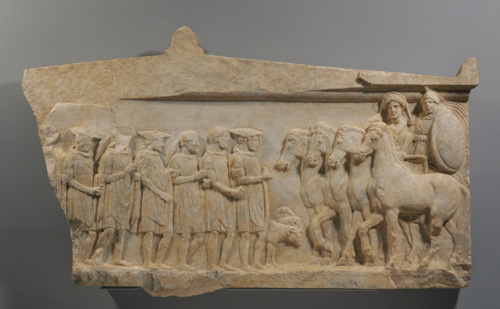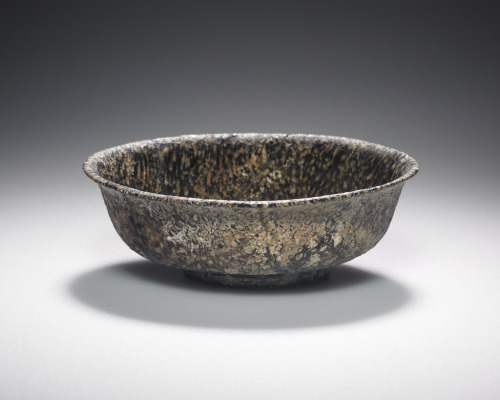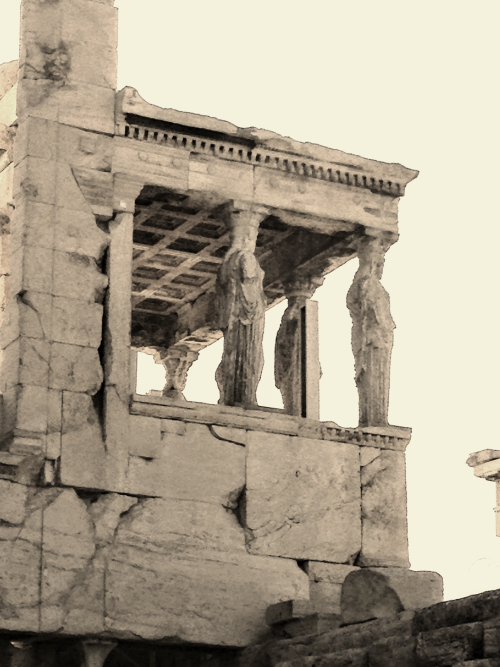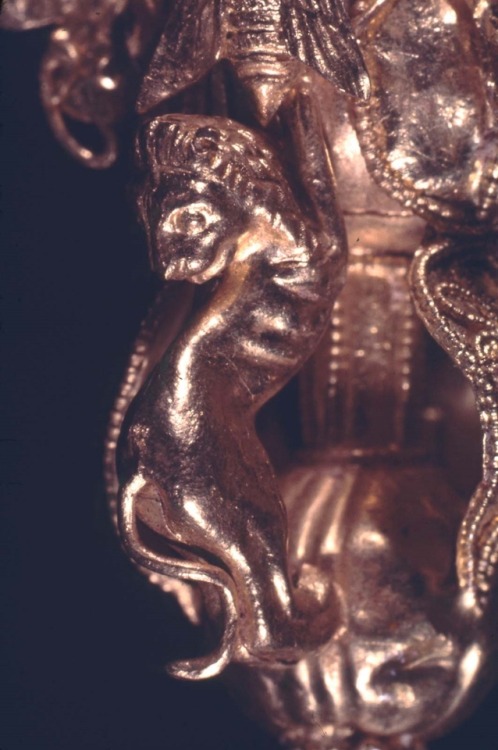#ancient greek history
“I was driven thence by foul winds for a space of 9 days upon the sea, but on the tenth day we reached the land of the Lotus-eaters, who live on a food that comes from a kind of flower.
Here we landed to take in fresh water, and our crews got their mid-day meal on the shore near the ships.
When they had eaten and drunk I sent two of my company to see what manner of men the people of the place might be, and they had a third man under them.
They started at once, and went about among the Lotus-eaters, who did them no hurt, but gave them to eat of the lotus, which was so delicious that those who ate of it left off caring about home, and did not even want to go back and say what had happened to them, but were for staying and munching lotus with the Lotus-eaters without thinking further of their return; nevertheless, though they wept bitterly I forced them back to the ships and made them fast under the benches.
Then I told the rest to go on board at once, lest any of them should taste of the lotus and leave off wanting to get home, so they took their places and smote the grey sea with their oars.”
From the Odyssey
Post link

By xX_Moriendum_Xx

By Boru
—–
Hector and Paris interpretations homework from Robinius Iliad class #3!
*All artists are credited with their twitter handles or names
These are so amazing! I’m happy everyone enjoyed the stream/lesson despite all the chaos (Dw it was fun and I loved it)!!! Check out all these amazing homeworks and interpretation! The verdict is nobody likes Paris, but these interpretations make it hard to hate him.. Also everyone loves hector, WE LOVE HECTOR!!!!!!!!!
Post link
Venus the golden sammy sled dog. Her position is long-distance lead and she’s owned by the musher Anya [whose Iliad counterpart is Aeneas]. Anya and her team are rivals of the Ilion sled dog sanctuary. While the Ilion sanctuary is a collaborative project I’ve made between me and my friends– I’ve made rivals that are all based on Iliad characters to keep up the theme (and my love for it!!). I hope to show them all soon ^_^b
Post link
Song of Ilion 【イリオンの唄】
“The Iliad has always been an oral tradition, and it’s your dream to write a fully composed version of it. Travel around Greece and collect fragments of the tale to create a story that will be told for thousands of years to come.”
My Famicase entry for this year! The Iliad is my all time favorite book so I wanted to finally make a tribute to it. It was really fun to work on and I really enjoyed adding little bits of easter eggs into it. Thank you always, Satoshi-san and Meteor Club for your hardwork in putting together Famicase! I sourced this post to the 2021 entries, please check them out ^.^/
Post link
A section of a votive relief that depicts Achilles and Thetis. The Greek hero Achilles is recognisable by his shield and helmet. He rides in a chariot with his mother Thetis.
It was probably set up in a religious sanction, the names of the dedicators partially legible at the bottom of the relief;
“… Lakrates and Gephes of the Achilleides.”
Image from The J. Paul Getty Museum via their online collection: 78.AA.264
Post link
1st century BC mosaic bowl. Possibly made in Olbia, Ukraine
Image from The J. Paul Getty Museum via their online collection:2003.247
Post link
Golden pin with sphinxes, lions, and bees
Greek - Peloponnesian / Classical Period - Late 5th century B.C.
The head of the pin begins with a ball, above which is a small shaft; from this rises an ornament in the form of a rosebud. Three lions crouch with their hind legs on the ball, and their forelegs on the bud. Between them, there are conventionalized petals. Above the lions are three bees, and between them three sphinxes, pressed flat. At the top, there is another small petal.
Post link
god i love reading about stupid drama in ancient greece. like there was an athlete named theagenes who was so good at every kind of athletic contest that when he died, one of his opponents would go to beat the shit out of a statue of him out of spite, but then one day the statue fell on the guy and killed him so the greeks took the statue to court for murder, convicted it, and threw it into the sea
actually i left out the best part of this story which is that a plague then struck and when people consulted the oracle at delphi she was like “well you’ve pissed of theagenes” so they had to go dig the statue back up out of the fucking water
Names in Ancient Greece

Lately, I’ve got a few questions related to this topic, so I thought we could look at this from a broader perspective!
Let’s get started!
Even as a kid, when I scarcely knew anything about the topic, I caught myself thinking “Damn, that’s a cool name!” with my nose buried in another book about Greek Mythology, purely because of the sound or the way the word rolled off my tongue. There are plenty of amazing ancient names with beautiful meanings and interesting history, not just in mythology!
We can learn about them from archaeological finds and ancient texts.
Personal names reflect the concerns and values of a society. The Greeks could get quite creative with their names and their rich language certainly served them as an excellent tool to contain such things even in something as seemingly inconspicuous as a name. Taking a closer look at them may thus shine some light on certain aspects of the life of the Ancient Greeks as well as help us understand it better.
In this post, we’ll look at different customs, practices, accounts, meanings and purposes of Ancient Greek names and later discuss their significance in terms of Hellenic Polytheism today!
The practice of naming
In short, the name was supposed to serve as a way to identify the individual. I think this is no surprise. However, there were different ways to go about it:
- Especially in earlier periods, having just one name was the norm but some might’ve acquired sort of a ’nickname’, often based on a distinguishable feature of the person (e.g. Antigonos Monophthalmos, the ‘One Eyed’).
- Patronymic names were also common and played an important role in better identifying and legitimising the person (e.g. Hektor Priamides, ‘son of Priam’).
- Origins of the individual could also be significant, although only in certain contexts, since if you were home, there was no need to indicate your origin. This was only used when abroad (e.g. Alcibiades son of Kleinias, Athenian)
Meanings of names
Meanings of Ancient Greek names could vary a lot. Here are some examples of the categories of words used:
- Animals
- Plants
- Body parts & physical characteristics
- Political institutions
- MIlitary prowess
Naming after a god
Some individuals were named after one of the deities of the Greek Pantheon. Usually, the name of the god was not literally used to name the person, however, there were instances of such practice (e.g. the name Artemis), though it was still quite uncommon.
Theophoric names were much more popular. They could be derived from a theonym, the proper name of the god or an epithet and could take different forms:
- simple adjectival forms - Apollonius, Demetrios, Artemisia
- the term 'genes’ (birth) - Diogenes ('Dio’ = Zeus)
- the terms 'dotos’ and 'doros’ (giving/gift) - Diodotos, Apollodoros
- the term 'kles’ (renown) - Diokles
- the term 'phanes’ (epiphany) - Apollophanes
- the term 'philos’ (loving) - Diophilos
- the ‘neutral’ type based on the word for god, ‘theos’ rather than any particular deity (e.g. Theokles, Theodoros, etc.)
The deities also varied and 'trends’ for such names also changed over time but overall names could be derived from all types of gods:
- The Olympian gods-common (some more, some less)
- Lesser deities and personifications (especially river gods)
- Heroes & deified mortals
- The Underworld gods-avoided (with some exceptions for Hekate)
Customs & Traditions
- Naming the first-born son after the paternal grandfather, and the second after the maternal grandfather
- Naming of children after a parent (especially in Hellenistic & Roman times)
- Amphidromia - an Athenian family festival, a feast celebrated on the fifth or seventh day after the birth of a child during which the newly born child was introduced into the family, and children of poorer families received their names (wealthier families held a naming ceremony for their children on the tenth day)
Modern Hellenic Polytheism
These are the things I’ve seen most commonly debated within the Hellenic Polytheist community when it comes to names:
- Could I name my child/myself after a god?
- Could I name an animal after a god?
I’ll try to answer these questions as best as I can, based on my knowledge about antiquity and include some of my own opinions (+ give a quick summary of the questions at the end).
1. Could I name my child/myself after a god?
The short answer is yes, it’s possible. From what I’ve seen, most people asking this question wonder whether it would still be respectful and in good taste. As I explained above, the practice was already seen in antiquity.
Atheophoric name would be fine. It was fairly common to be named after a certain deity (the name or an epithet) in antiquity.
It’s only natural to wonder if such a name would have any religious significance or perhaps indicate a relationship the person bearing the name might hold with the deity they’re named after. The answer is, it was possible but this was not always the case. There is no evidence that for example, the men named after Dionysus were more devoted to the god than any other men, so one must keep in mind that bearing a theophoric name could have no perceptible influence on the religious behaviour of the adult Greek who bore it.
So when did the name have some form of religious connotations for the individual?
When visiting oracles, a decent amount of people asked about the birth of children. If the oracle answered something like “yes, you will have a child” the promised child would most likely be named after the oracular deity. We can see a very interesting example of this in one of the inscriptions at Delphi.
According to one of the verses of the inscription Apollo ‘heard the prayer’ of an anonymous couple and ‘granted them offspring in his response’ requiring a hair offering in return. In the eleventh month, after a trouble-free pregnancy, the wife gave birth with ease, helped by Lochia [Artemis], the Fates and Phoibos [Apollon], to a thriving daughter (with hair already reaching her eyes, and destined to reach her chest in the first year). The parents named the girl Delphis, ‘because of the prophecy and in commemoration of Delphi’.
R. Parker, Theophoric Names and History of Greek Religion
The girl was named after the site of the oracle of Apollo, rather than his epithet Delphinius [Delphic], but nonetheless, it was arguably the most important cult place of the god and his most famous oracle.
Another interesting observation: when a certain deity (most often Asklepios) was believed to have aided with the child being born, the child would presumably receive a theophoric name as well (e.g. some Asklepi- variant).
Overall, if you consider using a theophoric name it could totally have religious significance to you, (e.g. naming yourself after your patron etc.) but it wasn’t a must in antiquity.
Using a theonym - the literal name of a god
Naming someone with the literal name of a deity was not common in Ancient Greece, however, it was not nonexistent. The name 'Artemis’ was especially popular in this case.
There’s a surprising amount of people who name their children after the deity (using the theonym), whether or not they realise these gods are still worshipped nowadays. The same goes for names of heroes, etc.
To be frank, it does not bother me too much, personally. However, there’s an ancient belief that by uttering the name of the god one could be invoking them. Basically, the god could be aware of when someone said their name. So, for example, since the Gods of The Underworld or as Isocrates calls them, gods of “less pleasant names”, were often feared, people would even refrain from saying their names out loud and rather addressed them by some forms of epithets. So naming a person “Hades” or “Persephone” would most likely not pass in antiquity (hell, in Euripides’ HelenPersephone was even referred to as “árrētos kórē” [the maid whom none may name]).
Could you use a theonym? I suppose so, although I think the theophoric variant might be a safer option. Still, keep in mind that’s a name of a god who’s still important to people who worship them and that saying their name could possibly attract their attention, I guess?
If you’re considering choosing a name like that, it’d be even better if you ask the deity for their permission in some way, especially if you actively worship the deity. I’ve met a few Hellenic polytheists who chose to name themselves after the deity they worship as another way to show their devotion to them and further honour the deity in their life, as well as other people who chose to name themselves after a hero because they admire the figure in some way or the myth about them has had some particularly important meaning to them.
My stance overall: You do you, just keep in mind the things I mentioned above, be respectful of the deities and the religion they come from etc.
2. Could I name an animal after a god?
This did not really exist much in Ancient Greece, although I was able to find a couple of instances when an animal was named after a hero or possibly after a personification.
The Ancient Greeks often formed close bonds with their animals, especially dogs. They did not usually give 'human’ names to their dogs.
Here are some dog names which might serve as an example:
- Chara (joy)
- Lailaps (whirlwind)
- Psyche (soul)
- Bremon (roarer)
- Augo (daybeam)
- Lampouros (firetail)
Other animals were also given names, cows, e.g. Lepargos (of white coat), horses, e.g. Podargos (swiftfoot) or Bucephalus (ox-head). A notable mention goes to the elephants of King Antiochus III called Ajax and Patroclus.
More often than not, the names of animals were rather simple and did not have much to do with the gods.
However, IMO naming an animal after a god is fine in some cases. I came across people who decided to name their animals after a deity they worship, namely an animal that’s also associated with/a symbol of the deity.
For example, if I had a dog I’d think of naming it “Ares” or some variation/epithet of this deity since the animal has been particularly associated with him, so perhaps it could be another way to show my devotion to him by caring for the dog, etc. although I’d still consider the things I mentioned above in the section about naming humans after gods and likely ask for his consent.
- To sum those two questions up:
IMO as long as you’re not using the name of the deity to somehow mock them, ridicule them or insult them and you acknowledge and respect who they are, it’s fine.
Further reading:
- Lexicon of Greek Personal Names (LGPN)
- R. Parker, Theophoric Names and the History of Greek Religion
- Xenophon,Cynegeticus
- S. H. Lonsdale,Attitudes towards animals in Ancient Greece
When something happened in ancient Greece:

In 331 BCE, Alexander the Great defeated Darius III of Persia in the Battle of Gaugamela.

Coin of Darius the Great, c 520-505 BCE.
In 522 BCE, Darius I (the Great) of Persia killed the Magian usurper Gaumâta. This secured his position as ruler of the Persian Empire.

Die Seeschlacht bei Salamis by Wilhelm von Kaulbach, 1868.
In 480 BCE at the Battle of Salamis, the Greek fleet under Themistocles defeated the Persian fleet of Xerxes I.

Denarius of Sextus Pompeius featuring his father, 40 BCE.
In 61 BCE, Gnaeus Pompeius Magnus (Pompey the Great) celebrated his third triumph following victories over the pirates and the end of the Mithridatic Wars. To add further celebrations, the triumph occurred on his 45th birthday.

Stater of the polis of Corinth. On the obverse, Pegasus above the Greek letter qoppa; on the reverse, Athena wearing a Corinthian helmet. Artist unknown; minted ca. 515-500 BCE. Photo credit: Classical Numismatic Group, Inc. http://www.cngcoins.com






